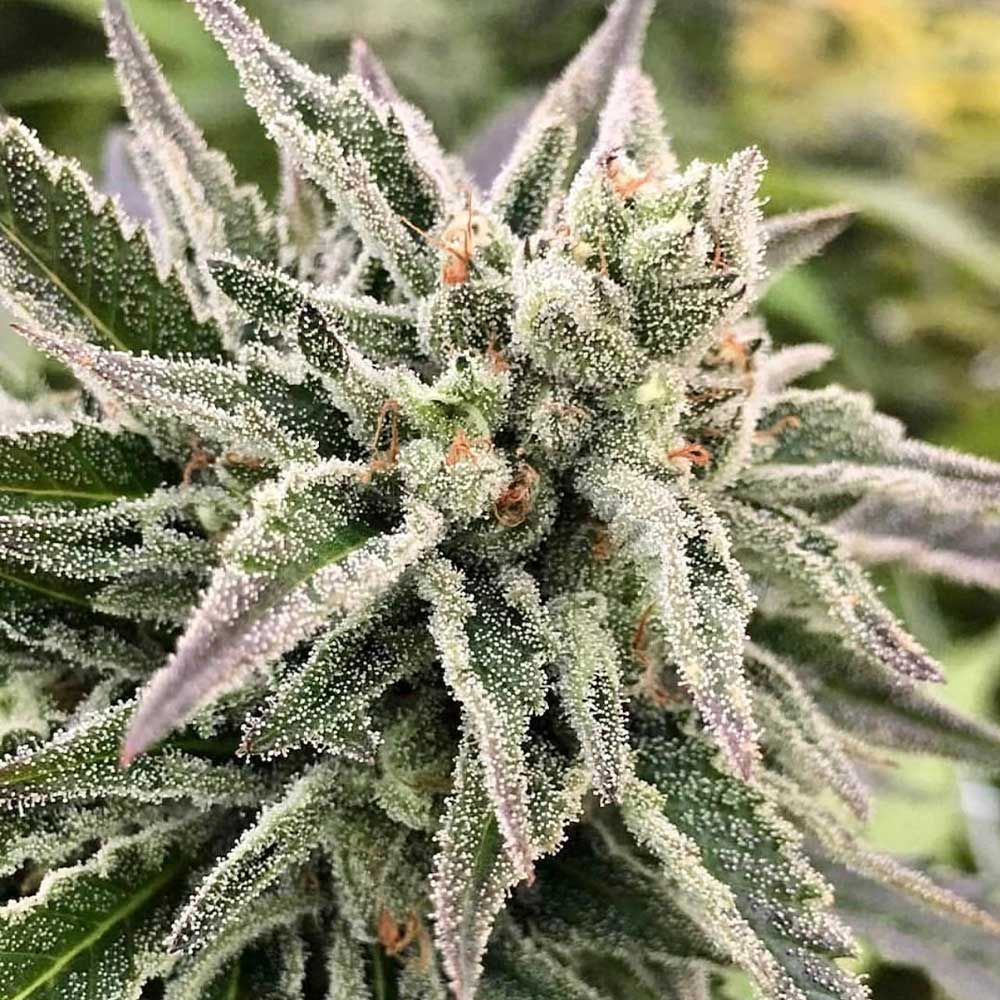AutoGuav Auto Cannabis Seeds by Crockett Family Farms are one of the newest hybrid auto strains from this legendary breeder that exploded in the industry thanks to their unique, incredible genetics which were initially launched with DNA back in the day with killer hybrids such as Strawberry Banana & the legendary Tangie.
AutoGuav Genetics:
The Autoguav strain takes the Guava as bred by Bloom Seed Co, which itself takes the delectable Strawberry Pie and crosses the elite Strawberry Guava with it, and takes this offspring and crosses it to Wauto Dog. Strawberry Pie is a cross of Georgia Pie & Strawberry Fritter, while the Strawberry Guava takes Strawnana and crosses the Mango x Afghani. This star-studded lineup is packed with strains with great resin production & thus washing potential.
Pair this with the Wauto Dog to provide auto-flower genetics to the lineage and you've got a true winner from Crockett. Wauto Dog blends Chem de la Chem with the Watermelon OG for a ruderalis-based strain that adds flavour, potency and a delightfully fragrant aroma as well as giving the Guava the auto-flowering genes.
These high-quality seeds have been carefully crafted by crossing Chem de la chem with Watermelon OG, resulting in a strain that is both potent and delicious. The plants themselves are short and compact, making them ideal for growing in a variety of settings, from small indoor gardens to large outdoor plots.
Autoflowering Benefits:
-
Smaller Size: Unlike photoperiod plants, auto-flowering strains tend to be more compact and smaller in size. Their size enables them to be more easily hidden as their size is far more controlled.
-
No Need for Light Cycle Changes: Unlike photoperiod strains that require changes in light cycles to induce flowering (just like how the days get shorter throughout the season for outdoor growing plants), autoflowers transition from the vegetative to flowering stage automatically.
Resilience and Robustness: Autoflowering cannabis strains are generally hardy thanks to the ruderalis in the lineage that typically are expressed in colder climates such as the US Midwest and are more resistant to temperature fluctuations, pests, and diseases. The ruderalis genetics evolved to survive in harsh climates.




